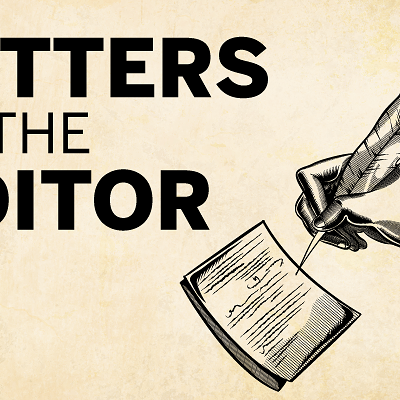Re: "Bigger love," Feature by Katie Toth (May 1): For an entire generation, right-wing political movements have hit us on the head with "the return to family values" as a top-shelf intoxicant in their political agenda. Yet equally political is the personal choice of living a more honest, egalitarian way of life. I count myself as one of the latter.
For the last 15 years, I have chosen to live alternatively to the formulaic dating/marriage/divorce model for love. Every day, we make choices on who we will spend time with, have romantic/intimate relationships with and yes, even love. Instead of navigating the murky waters of relationships alone, my partners and I, through honesty, open communication and trust, have chosen to support each other in all aspects of our lives and with those we share it with.
We believe that loving someone means that you want that person to be happy. Happy with you, of course, for whatever time you are together, but also, happy when not with you. Moving to a place where you can allow your partner(s) to go and have their own relationship(s) with somebody else is a far stretch for many. It challenges our bedtime comforts.
Every day, we make a conscious choice to stay with our partner(s) or choose new ones. The knowledge that my partners are with me because they want to, rather than because they must, is a wonderful feeling--- and how better to know that someone really feels like sharing their lives with me than to have them come to me to share their joy about finding a new lover?
Certainly, polyamory is not for everyone. Some people just can't cope with it. Especially in relationships, where people feel vulnerable, where emotions are high and a great deal is at stake. For some, it may be because of jealousy or feelings of insecurity, fear and/or anxiety over an anticipated loss of a partner or of that partner's attention, affection or time. For some, this equates into possessive and controlling relationships which, over time, are recipes for emotional turmoil and conflict.
We live in a harshly moralistic society which serves to deny creativity, love and pleasure at every turn. The very fact of being willing and daring to explore another person's emotional and sexual desires, feelings and realities is a challenge to this morality and control; to the status quo.
In response to this challenge, in August 2012, my partners and I decided to make a life commitment to each other. Though non-traditional, our commitment ceremony was a meaningful way for us to express and celebrate our love and lives together, with our friends and family members. It was an expression of our level of commitment to each other. It was a culmination of our collective desire to do relationships differently; to live and love differently. Reaching that point required a creative re-imagining and redefining of heteronormative assumptions regarding relationships, family and even love in order to create a space where new definitions/understandings can exist. In short, we've redefined our family from the inside out, not the outside in.
We are not alone. There is a growing number of people and families in Nova Scotia who are dissatisfied with traditional ways of thinking and living. Many thanks to Katie Toth for bringing some of these families to light. —L. Borden, Lake Echo
Excellent article, but your definition of polyamory in the glossary misses a key defining part: being in romantic relationships with multiple people at the same time with the knowledge and consent of all concerned. This was central to the definition by the word's inventor in 1990, and when it entered the Oxford English Dictionary in 2006, and as understood throughout the poly community today. —Alan M., Polyamory in the News
The article was very enlightening. After reading it, it becomes very clear that societal concept of intimate interpersonal relationships are changing, at least in a segment of our society. This segment of our society is becoming a self-centred and self- gratifying, to the extent that they don't hesitate to exploit one another. Is this "bigger love"? —Jaywant Patil, Eastern Passage















